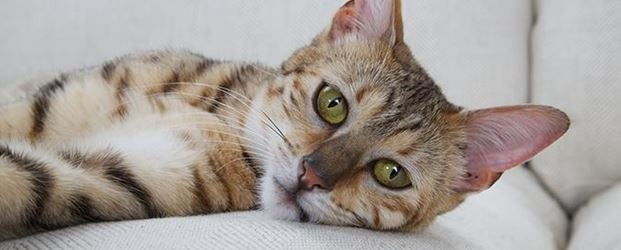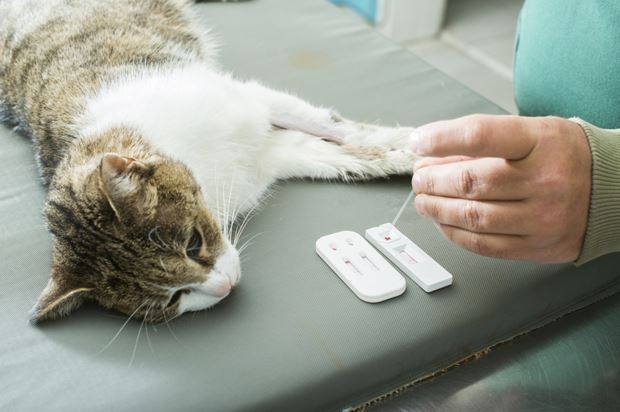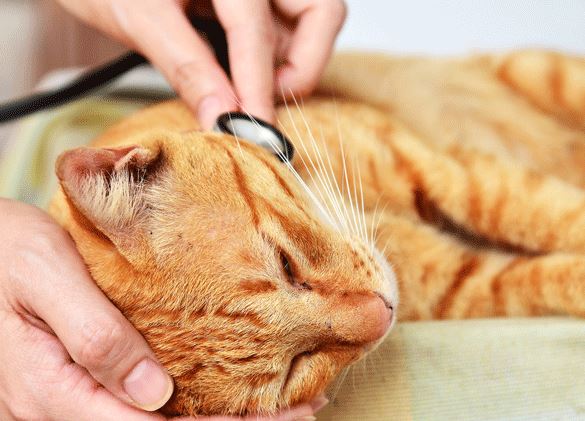Just like human beings, animals also suffer several deadly health diseases and FIV (Feline Immunodeficiency Virus) is one of them. In the United States, around 1.5 to 3% of healthy cats are suffering from FIV and its major cause is untreated bite wounds.
What Is FIV?
FIV (Feline Immunodeficiency Virus) is a lentivirus affecting more than 2.5 to 4.4% cats throughout the globe. FIV is somewhere different from two other feline retroviruses including- FFV (Feline Foamy Virus) and FeLV (Feline Leukemia Virus).
This virus is somewhere related to HIV (Human Immunodeficiency Virus) resulting, in a high majority of regions, veterinary practitioners recommend consulting a reliable ELISA kit company to diagnose FIV in cats.
Majorly, FIV attacks the different cell types in a cat including- CD8+ T Lymphocytes, CD4+, Macrophages, and B Lymphocytes.
What Are The Most Common Symptoms Of FIV?
An FIV infected cat may not show the disease symptoms for a couple of years but once you start witnessing them, its adverse impact is going to increase only. So, before it gets too late make sure you consult a veterinarian as soon as possible.
To help you understand when is the right time to take your cat to hospital, go through these common symptoms to be understood.
-
Poor appetite
-
Temperature
-
Constant weight loss
-
Diarrhea
-
Dental infection
-
Excessive hair loss
-
Uncontrollable skin redness
-
Abnormal inflammation of the gums, mouth, and eyes
-
Enlarged lymph nodes
-
Frequent sneezing
-
Disheveled coat
-
Wounds
-
Increased urination problems
-
Anemia
-
Sudden behavioral change
How Is FIV Transmitted?
FIV is transmitted through cat to cat. However, it is closely related to HIV yet neither it is transmitted from cats to human beings nor passes through unhealthy sexual practices. It transmits via deep bite wounds that remain open and untreated for long. If not this, an FIV infected cat mother when gives birth, the disease transmits to her kitten as well. Just like HIV, FIV does not pass by sharing food. Always make sure your using cat wipes for any issues as well.
How To Diagnose FIV?
No matter what medical process is followed, the aim is to check the presence of antibodies & virus in the cat’s blood. On the first attempt, no test shows 100% accurate results which are why veterinarians often suggest re-examining the FIV state after confirming positive or negative test results. After Elisa kits, the western blotting technique is the preferred medical treatment to view apt results.
What Are The Best Treatments For FIV-Infected Cats?
Unfortunately, there is no permanent treatment for FIV. Although, some medicines and medical procedures can extend your cat’s longevity. Cats carry & suffer from FIV without displaying any sign of it for many years. Once appeared, the disease is already in its secondary stage. Here are a few treatments usually advised by a veterinarian at this stage:
-
Electrolyte replacement therapy
-
Diet to strengthen the immune system
-
Medication to reduce the FIV effects in the secondary stage
-
Parasite control
-
Anti-inflammatory drugs
These are some basic medication types, it may vary as per the cat’s FIV state.
Major Precautions For FIV-Infected Cats
-
Don’t let your cat go outside frequently. Consider a physical barrier or an invisible fence for cats.
-
Take the cat for regular health check-ups twice in a week
-
Feed the cat a well-balanced diet containing all the necessary nutrition
-
Take proper care of cat’s hygiene
-
If your cat has been suffering from any wound from a long time, get it treated immediately
What If FIV Is Left Untreated For Long?
In case, the cat is not taken under medical proceedings even after witnessing the above-mentioned symptoms, there are chances of FIV developing into life-taking cancer disease. If not this, the cat’s life may come under danger through kidney failure or blood disease.
The Final Word-
As HIV hits human beings in the same way, there is a deadly disease named FIV (Feline Immunodeficiency Virus) which attacks the cells and immune system of cats specifically. It has two main stages including- primary & secondary. Usually, the cat starts to show the symptoms in the secondary stage and at this stage, the disease becomes incurable.
There are several treatments to detect and lower down the impact of FIV but that only works well when the treatment is started at the right stage. The most common symptoms of FIV include- diarrhea, fever, wounds, poor appetite, etc.
To help your cat get rid of it, taking some hygiene and diet precautions is mandatory.



